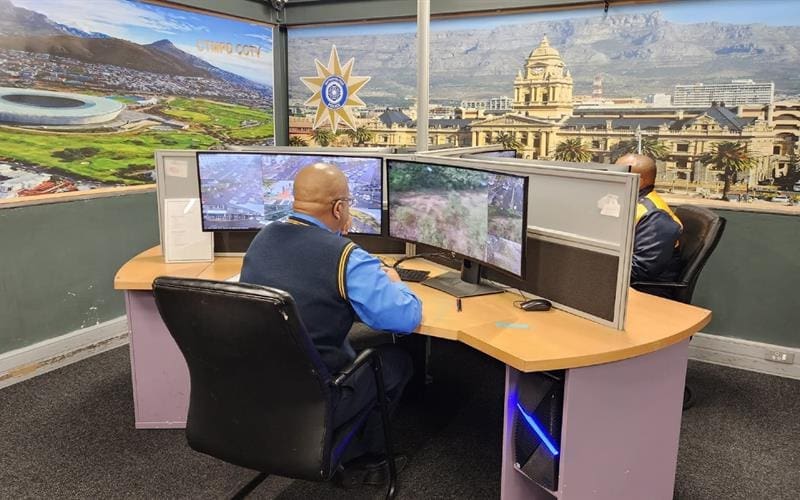President Cyril Ramaphosa has reaffirmed South Africa’s commitment to leveraging technology in law enforcement, saying the country is adopting surveillance, analytics, and smart policing solutions to modernize crime-fighting efforts.
Speaking during his annual State of the Nation Address (SONA), Ramaphosa highlighted the crucial role of artificial intelligence (AI) and digital forensics in combatting financial crimes, corruption, and violent offenses.
“We have seen the value of technology in fighting crime,” he stated. “By using AI in its fraud risk detection and verification work, SARS has prevented the leakage of over R95 billion in impermissible refunds, recovered R20 billion in revenue, and dismantled an illicit tobacco and gold scheme.”
The South African Police Service (SAPS) is strengthening its efforts against organized crime through targeted operations such as Operation Shanela, which has successfully led to arrests, firearm recoveries, and the seizure of stolen vehicles.
The President emphasised that tackling gun violence remains a top priority, instructing law enforcement to “prioritise reducing gun-related crime and violence, prevent firearms from entering the illicit market, and recover illegal firearms in circulation.”
To enhance investigative capabilities, SAPS will expand its Detective Service by 4,000 personnel through internal recruitment. Meanwhile, efforts to combat gender-based violence (GBV) will continue with the expansion of support services, including 65 Thuthuzela Care Centres and 16 new sexual offenses courts.
Ramaphosa also reiterated his administration’s unwavering stance against corruption. “We want a nation that is free of corruption,” he said. The establishment of the Investigating Directorate Against Corruption within the National Prosecuting Authority (NPA) has strengthened efforts to prosecute state capture cases, with over R10 billion recovered in related cases.
To further combat financial crime, the government is building a world-class digital forensics lab to investigate high-level corruption. The Special Investigating Unit and Asset Forfeiture Unit have already made significant recoveries, and legislative reforms are underway to bolster whistleblower protection and streamline anti-corruption measures.
On the international front, South Africa has made progress in its efforts to be removed from the Financial Action Task Force (FATF) grey list, addressing 16 of the 22 identified weaknesses in its law enforcement system.
Ramaphosa concluded by reinforcing South Africa’s commitment to peace, stability, and global partnerships. “We continue through our international relations to advance the well-being of the South African people as we seek to advance the well-being of humanity,” he said.
With a firm focus on smart policing, anti-corruption measures, and justice system reforms, South Africa is taking decisive steps to ensure safety, accountability, and a crime-free society.
GUGU LOURIE: Use surveillance cameras to combat rising violent crime
It’s time for South Africans to prioritise safety over privacy
Is Vumacam’s CCTV Network Helping The Gauteng Provincial Government Prevent Crime?
